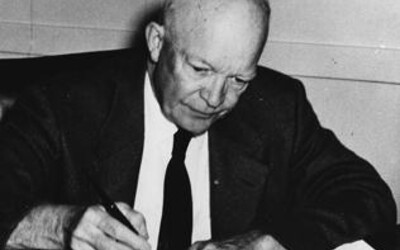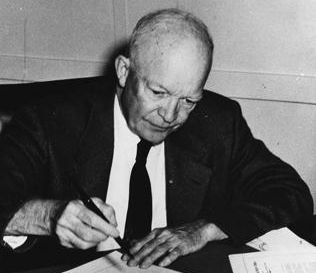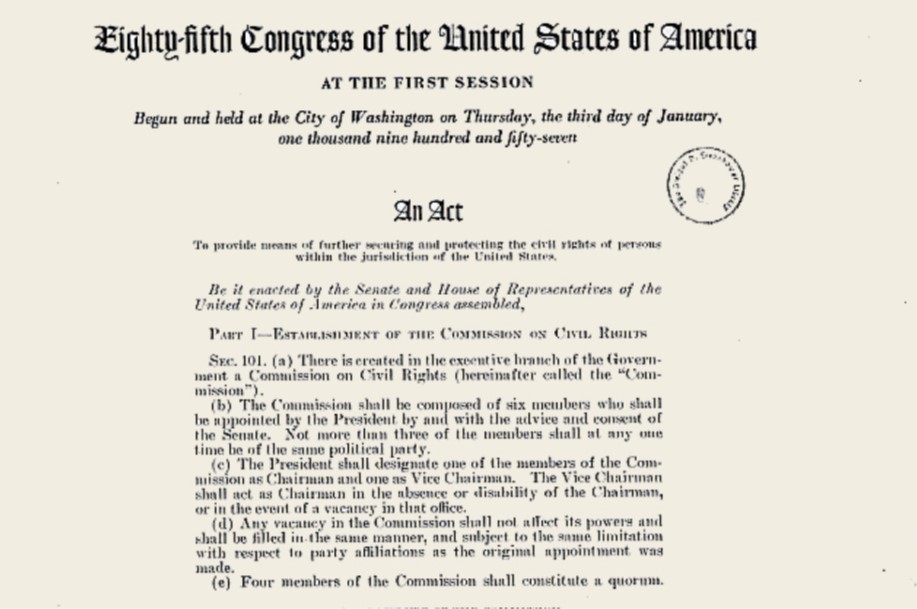




The act signed by President Eisenhower on September 9 was a response to the political dissension that resulted from the Supreme Court’s 1954 ruling Brown v. Board of Education of Topeka (Kansas). It was the first civil rights legislation passed since the Reconstruction era. The legislation had faced significant opposition from Southern members, especially in the Senate.
 Dwight Eisenhower signs act on September 9, 1957 Image Courtesy of USN
Dwight Eisenhower signs act on September 9, 1957 Image Courtesy of USN
The final version of the act signed by the President stipulated the following:
Created an executive Commission on Civil Rights.
Authorized the President to appoint an additional Assistant Attorney General, with the understanding he would head a new Civil Rights Division in the Department of Justice.
Empowered the Attorney General to seek an injunction when an individual was deprived or about to be deprived of his right to vote.
Set fines for those convicted in criminal contempt cases arising from the provisions of the bill.
Allowed the judge to decide whether the defendant in such cases should be tried with or without a jury.
Specified cases in which a convicted and sentenced person could demand and receive a jury trial.

The creation of the Civil Rights Division of the Department of Justice had the objective to uphold existing federal laws. In the 1960s, under the leadership of Assistant Attorney Generals Burke Marshall and John Doar, the Division would also be essential in securing important legal victories in the civil rights field. The Civil Rights Commission was an independent six-member bipartisan group created to reflect on problems of racial discrimination, especially as they pertained to voting rights, and to put forward pertinent recommendations to Congress. The Commission’s report of 1961 laid some of the foundation for two landmark civil laws: the Civil Rights Act of 1964 and the Voting Rights Act of 1965.
RESEARCH & WRITING
Louise-Helene Filion, Ph.D.
PHOTO RESEARCH
Rebecca Phoenix
Bibliography:
-“Congress Approves Civil Rights Act of 1957.” CQ Almanac 1957, 13th ed., 07-553-07-569, http://library.cqpress.com/cqalmanac/cqal57-1345184 . Accessed 11 February 2022.
-Scheb, John M. II and Otis H. Stephens, Jr., “Civil Rights Act of 1957.” Encyclopedia of American Civil Rights and Liberties, Revised and Expanded, edited by Kara E. Stooksbury, et al., 2nd ed., vol. 1, Santa Barbara, ABC-CLIO, 2017, p. 154.
-Sheppard, Steve. “Civil Rights Act of 1957.” Dictionary of American History, edited by Stanley I. Kutler, 3rd ed., vol. 2, New York, Charles Scribner’s Sons, 2003, pp. 194-195.
-“The Civil Rights Division Celebrates 60th Anniversary.” Targeted News Service, Washington, D.C., 6 September 2017.